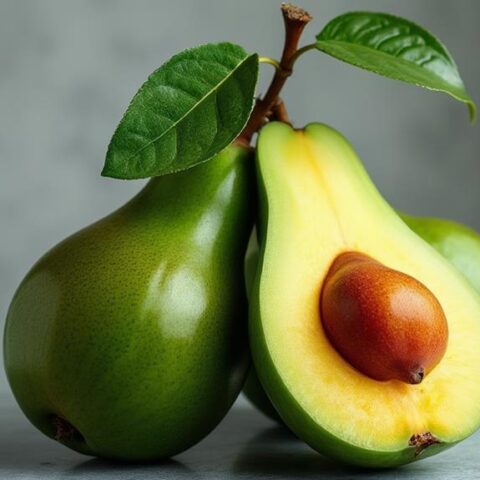
Tilapia is an excellent low-carb protein choice, containing zero net carbohydrates per 100-gram serving while providing 20 grams of protein. This lean fish delivers essential nutrients, including selenium, phosphorus, and B-vitamins, while maintaining a low caloric profile of 128 calories per serving. With only 1.7 grams of fat and moderate cholesterol levels, tilapia supports both ketogenic and carbohydrate-restricted diets. Its nutritional composition offers valuable insights for those seeking to optimize their dietary choices.
Key Takeaways
- Tilapia contains zero net carbohydrates per 100g serving, making it an excellent choice for low-carb and ketogenic diets.
- With 20g of protein per 100g serving and only 128 calories, tilapia is a lean protein source ideal for weight management.
- The fish provides essential nutrients like selenium, phosphorus, and B-vitamins while maintaining zero impact on blood sugar levels.
- Fresh tilapia has high water content (78.08%) and low fat (1.7g per serving), contributing to its status as a healthy low-carb option.
- Proper cooking methods like baking, air frying, or pan-frying maintain tilapia's nutritional benefits while keeping it carb-free.
What Makes Tilapia a Low-Carb Option
When it comes to low-carb dietary choices, tilapia stands out as an exceptional option due to its complete absence of net carbohydrates. This versatile fish provides substantial nutritional benefits while aligning perfectly with low-carb dietary requirements, containing zero grams of carbohydrates per 100-gram serving.
Tilapia's impressive protein content of 20 grams per 100 grams makes it an ideal choice for those seeking to maintain muscle health while minimizing carbohydrate intake.
With 20 grams of protein per serving, tilapia delivers powerful muscle support while keeping carbohydrate consumption at zero.
With its remarkably low caloric content of 128 calories per serving and a glycemic index of zero, tilapia offers a nutrient-dense protein source that won't impact blood sugar levels.
These characteristics make it particularly valuable for individuals following ketogenic or other carbohydrate-restricted eating plans, allowing them to meet their nutritional needs without compromising their dietary goals.
Essential Nutrients and Macros in Tilapia
Tilapia's impressive nutritional profile centers on its lean protein content of 20.08 grams per 100-gram serving, while maintaining a modest fat content of only 1.7 grams.
The fish's mineral density showcases notable amounts of selenium, phosphorus, and potassium, with selenium meeting 78% of daily requirements.
This nutrient-rich fish provides essential B-vitamins, including niacin and B12, while keeping cholesterol levels moderate at 50 milligrams per serving.
Protein and Fat Content
As a lean protein powerhouse, tilapia offers an impressive 20.08 grams of protein per 100-gram serving while maintaining a remarkably low fat content of just 1.7 grams.
This favorable protein-to-fat ratio makes it an excellent choice for health-conscious individuals seeking to optimize their nutritional intake.
The fish's composition includes minimal saturated fat, containing only 0.5 grams per 100-gram serving, while providing essential fatty acids necessary for bodily functions.
With a moderate cholesterol content of 50 mg per serving and a high water content of 78.08%, tilapia supports both protein requirements and hydration needs.
These nutritional characteristics position tilapia as an ideal protein source for those following various dietary plans, particularly when managing fat intake while maintaining adequate protein consumption.
Mineral Density Analysis
The mineral composition of tilapia stands out as particularly impressive, with substantial concentrations of essential nutrients packed into each serving. This protein-rich fish delivers significant amounts of potassium, providing 338 milligrams per 116-gram portion, which supports proper muscle and nerve function.
Additionally, tilapia contains 191 milligrams of phosphorus, contributing to bone health and cellular energy production.
While being low in carbohydrates, tilapia's mineral profile is complemented by important vitamins, including vitamin D and B12, making it a nutrient-dense choice for health-conscious consumers.
The combination of these minerals, along with its lean protein content and minimal fat, positions tilapia as an excellent option for those seeking to maintain a balanced, nutrient-rich diet while managing their carbohydrate intake.
Omega Ratio Breakdown
Understanding the omega fatty acid composition in tilapia reveals important nutritional considerations for health-conscious consumers. While tilapia is low in fat overall, containing just 1.7 grams per 100-gram serving, its omega ratio profile deserves careful attention for those monitoring their fatty acid intake.
- Each serving provides 240 mg of omega-3 fatty acids, contributing to essential fatty acid requirements.
- The fish contains a higher proportion of omega-6 fatty acids compared to omega-3s.
- The omega-6 to omega-3 ratio may promote inflammatory responses in some individuals.
The significant presence of omega-6 fatty acids relative to omega-3s suggests that consumers might benefit from balancing their tilapia consumption with other fish species that offer more favorable omega ratios, particularly for those following anti-inflammatory dietary protocols.
Health Benefits of Including Tilapia in Your Diet
Tilapia offers impressive nutritional benefits as a complete protein source, providing all essential amino acids necessary for muscle maintenance and growth.
The fish's rich array of vitamins and minerals, including significant amounts of vitamin B12, niacin, and selenium, supports various bodily functions from energy production to immune system health.
With its nutrient-dense profile and lean protein content, tilapia serves as an excellent dietary choice for those seeking to maintain overall health while managing their protein intake and essential nutrient levels.
Protein-Rich Complete Nutrition
Nutritionally dense and protein-rich, tilapia stands out as an exceptional source of complete nutrition for health-conscious individuals. With 26 grams of protein per 3.5 ounces, this versatile fish delivers essential nutrients while remaining low in carbohydrates, making it an excellent source of lean protein for various dietary needs.
Key nutritional highlights include:
- Essential vitamins and minerals, including significant amounts of niacin (24% DV), vitamin B12 (31% DV), and selenium (78% DV)
- Only 128 calories and 3 grams of fat per serving, supporting weight management goals
- Zero net carbohydrates per 100 grams, ideal for low-carb and ketogenic diets
These nutritional benefits, combined with tilapia's low mercury content, make it a practical choice for meeting weekly seafood recommendations while maintaining peak health.
Essential Vitamins and Minerals
When examining the health benefits of incorporating tilapia into one's diet, the impressive array of essential vitamins and minerals stands out as particularly remarkable. This fish provides substantial amounts of niacin and vitamin B12, delivering 24% and 31% of daily values respectively, which support energy metabolism and nervous system function.
Beyond its high-quality protein content, tilapia is rich in vital minerals that contribute to overall health. The fish contains significant levels of phosphorus for bone health, selenium for antioxidant protection, and potassium for maintaining healthy blood pressure.
With 20% of the daily value for phosphorus and a remarkable 78% for selenium per serving, tilapia offers extensive nutritional benefits while remaining low in calories and fat, making it an excellent choice for those seeking balanced nutrition.
Comparing Tilapia to Other Low-Carb Fish
Fish enthusiasts seeking low-carb options will find that tilapia stands among several excellent choices in the seafood category. With 0.0g net carbs per 100g, tilapia provides a completely carb-free protein source that rivals other low-carb fish in nutritional value.
When comparing tilapia to other popular fish options, several key differences emerge:
- Tilapia contains 20.08g of protein per 100g, matching the protein content of fish like haddock.
- Unlike salmon, which has 3.5g of net carbs per 100g, tilapia maintains zero carbohydrates.
- While cod shares tilapia's zero-carb profile, tilapia offers a distinct nutrient composition.
Though tilapia's omega-3 content is lower than fatty fish like mackerel, its high protein content and zero-carb profile make it an excellent choice for low-carb dieters.
Selecting and Storing Fresh Tilapia
Proper selection and storage of tilapia greatly impact its taste, texture, and nutritional value. When selecting fresh tilapia, consumers should look for moist, uniform fillets with a mild aroma, avoiding pieces with strong fishy odors or discolored spots.
For whole fish, clear eyes and shiny skin are key indicators of freshness.
For ideal storage, keep fresh tilapia in the refrigerator between 32°F and 38°F, and consume within 1-2 days of purchase.
If longer storage is needed, wrap fillets tightly in plastic wrap or aluminum foil before placing them in an airtight container or freezer bag.
When ready to use frozen tilapia, thaw it gradually in the refrigerator overnight or under cold running water to maintain its quality and guarantee food safety.
Best Cooking Methods for Maintaining Nutrients
To maintain the nutritional integrity of tilapia during preparation, selecting the right cooking method proves essential for preserving its valuable protein content and healthy fats. Several best cooking methods effectively retain the nutritional benefits while enhancing flavor profiles.
- Baking at 450°F for 4-6 minutes per half-inch thickness preserves nutrients while creating a delectable dish without added carbohydrates.
- Air frying at 400°F for 6-8 minutes delivers a crispy texture while maintaining high protein content and minimizing added fats.
- Pan-frying in minimal olive oil for 2-3 minutes per side enhances flavor while keeping fat content low.
Incorporating herbs and spices during cooking enhances taste without compromising nutritional value, making tilapia an excellent choice for health-conscious individuals seeking protein-rich meals.
Common Myths About Tilapia and Carbs
Despite its proven nutritional benefits, tilapia has become the subject of numerous misconceptions regarding its carbohydrate content and overall health impact. Several widely circulated myths have incorrectly compared this low in fat fish to unhealthy processed foods, causing unnecessary concern among health-conscious consumers. Scientific evidence clearly demonstrates that tilapia contains zero net carbs per 100 grams, making it an excellent protein source for those following low-carb or ketogenic diets. The misconception about tilapia's carbohydrate content appears to stem from misreported studies and internet rumors. In reality, with only 0.5 grams of saturated fat per three-ounce serving, tilapia offers a lean, nutritious option for those monitoring their macronutrients. These facts firmly establish tilapia as a healthy choice for various dietary needs. The ketogenic diet, which emphasizes low carbohydrate intake, aligns well with the nutritional profile of tilapia, making it a suitable option for those managing blood sugar levels.
Sustainable Sources and Smart Shopping Tips
Making informed choices when purchasing tilapia requires understanding sustainable sourcing practices and key shopping considerations.
Smart tilapia shopping starts with knowing where your fish comes from and how it was raised sustainably.
When evaluating sustainable sources and tilapia farming practices, consumers should focus on certification labels and country of origin to guarantee quality and environmental responsibility.
Smart shopping tips for selecting sustainably-sourced tilapia include:
- Look for Ocean Wise ratings and certifications from recognized organizations like MSC or Global Aquaculture Alliance.
- Choose tilapia from countries with strict farming regulations, such as Ecuador, Peru, or the United States.
- Consider locally farmed options to support regional economies and reduce transportation impacts.
While China produces most frozen tilapia in U.S. markets, opting for products from countries with more rigorous oversight helps guarantee better farming practices and product quality.
Frequently Asked Questions
Is Tilapia Good for a Low Carb Diet?
Tilapia's zero carb content makes it ideal for low-carb diets. Its high protein and minimal fat content offer versatile tilapia meal options, while providing significant tilapia diet benefits for carbohydrate-restricted eating plans.
Is Tilapia a Nutritious Fish?
Tilapia stands among nutritious fish varieties, offering significant health benefits including lean protein, selenium, and essential vitamins. Its versatility allows for various healthy cooking methods while remaining a low-fat protein choice.
What Are the Pros and Cons of Tilapia?
Tilapia offers affordable protein and mild taste, appealing to diverse taste preferences. However, questionable tilapia farming practices raise environmental impact concerns, while its higher omega-6 content makes it nutritionally inferior to other fish.
Why Do Bodybuilders Eat so Much Tilapia?
Bodybuilders favor tilapia as a lean protein source that supports muscle recovery. Its high protein content, low fat, and versatility in meal prep make it ideal for their strict nutritional requirements.
Conclusion
Tilapia stands as an excellent low-carb protein choice for health-conscious consumers, offering substantial nutritional benefits with minimal carbohydrate content. When sourced responsibly and prepared properly, this versatile fish provides essential nutrients while supporting various dietary goals. Understanding tilapia's nutritional profile, selecting quality sources, and employing proper cooking techniques guarantees maximum health benefits while maintaining its naturally low-carb status in a balanced diet.










No Comments